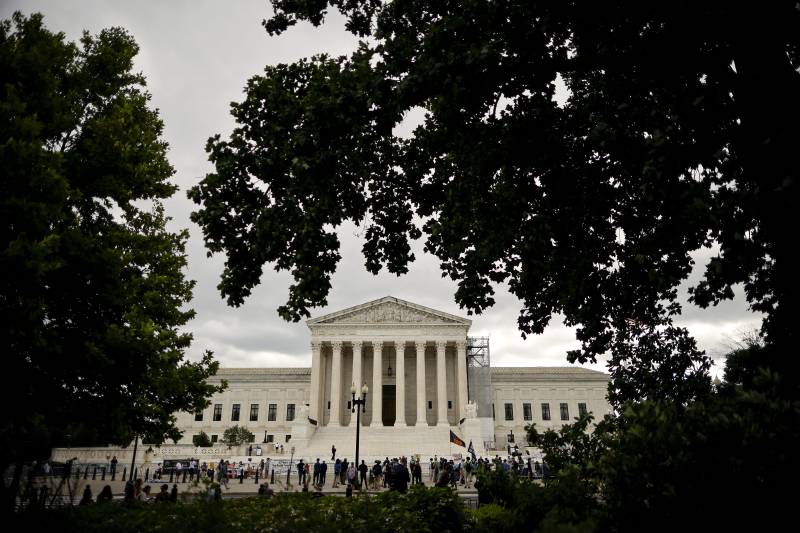America can’t afford to fall behind China in the race for biotech dominance
Biotechnology will have a transformative impact on defense, supply chains, agriculture, health and computing, all areas that will affect our national security.

Earlier this week, the congressionally-mandated National Security Commission on Emerging Biotechnology released its major report, titled “Charting the Future of Biotechnology.” The bipartisan and bicameral commission — on which I serve as a commissioner, although the views here are solely my own — asserts in no uncertain terms that “biotechnology represents the next transformative leap for human potential.”
Biotechnology — in less than a decade and when mated with artificial intelligence — will have a transformative impact on defense, supply chains, agriculture, health and computing, all areas that will affect our national security. And yet it is China, not the U.S., that has assigned top priority to biotechnology development for two decades.
China’s efforts pose a direct threat to America’s national security. Beijing has harnessed both its government and civilian sectors in what it terms “military-civil fusion” to enable the People’s Liberation Army to displace the U.S. military as the world’s most dominant force. It has invested in gene editing, bionic robots and biomanufacturing, all of which have military applications.
China has already employed biotechnology for surveillance of its own people, notably the Uyghur population. One of its scientists, initially defrocked but now back in his lab, modified the genes of babies to make them more resilient to infections. It is not a stretch from that effort to develop “super soldiers,” a clear Chinese objective.
Chinese control of critical supply chains — the nation already dominates basic health products such as pain relievers — could enable it to blackmail other countries simply by threatening to cut off supplies. China could infiltrate agricultural food chains, with devastating effects not only on America’s military but on our population as a whole.
And all of this could take place well within a decade, unless the U.S., which still holds the lead in basic and applied biotechnology research, develops a cohesive, integrated, public-private biotechnology strategy.
To this end, the commission’s report outlines 50 major recommendations that fall into six categories. Among these are a call for the U.S. to prioritize biotechnology at the national level and, as a first step, establish a National Biotechnology Coordinating Office within the Executive Office of the President.
Additionally, the report recommends that should take several steps to help mobilize the private sector to get U.S. biotech products to scale — which, apart from the health sector, is currently not the case. For that reason, Congress should direct regulatory agencies to simplify their processes to enable companies to bring biotechnology products to market. Congress should also fund an independent investment fund to finance technology startups whose products would have a major positive effect on national security.
Moreover, in order to “maximize the benefits of biotechnology defense,” Congress should direct the Department of Defense to “work with private companies to build facilities across the country to biomanufacturer products that are critical for [its] needs.” Biotechnology should not be the sole province of elite laboratories on the coasts. Biomanufacturing facilities can be built anywhere in the country, and could provide employment not only to those who hold advanced degrees but to employees with a wide range of skills and educational backgrounds.
In order to ensure that America maintains a permanent lead over China in biotechnology, the report recommends that Congress authorize the Department of Energy to build a new “Web of Biological Data.” Because such a web would be widely available, it would be a boon to researchers as they pursue new biotechnology developments. At the same time, Congress should review existing export policies and provide any additional authorities that are needed to ensure China cannot obtain sensitive biological data from the U.S.
Little of the foregoing is feasible unless America has a biotech-literate government and public, which is not the case today. The report recommends that Congress “direct the Office of Personnel Management to provide workforce training in biotechnology across the interagency” and also “maximize the impact of domestic biotechnology workforce training programs.”
Finally, it is important to recognize that many of our allies have also made strides in biotechnology and are willing, indeed eager, to work with the U.S. in cooperative biotech development. For example, there are indications that the British government would be interested in including biotech in the research development pillar (“Pillar 2”) of the Australia-U.K.-U.S. agreement or AUKUS. Among other steps to foster international cooperation with our friends and partners, the report recommends that Congress include biotech within the scope of the State Department’s International Technology Security and Innovation Fund.
Ensuring America’s lead in biotechnology, and thereby protecting our national security in the face of China’s determination to dominate the biotech field, is very much a bipartisan objective. The commission’s membership includes two Democrats, Sen. Alex Padilla (D-Calif.) and Rep. Ro Khanna (D-Calif.), and two Republicans, commission chairman Sen. Todd Young (R-Ind.) and Rep. Stephanie Bice (R-Okla.).
Moreover, the White House has indicated that biotechnology is a major concern of its own. A recent executive order specifically states that “if the U.S. wishes to maintain an effective security umbrella to defend its citizens and homeland, as well as allies and partners, it needs to have a large upstream manufacturing and goods-producing ecosystem. This includes developing new manufacturing technologies in critical sectors like bio-manufacturing.”
Recent proposed federal funding cuts in research and development could run directly counter to that executive order as it relates to biotechnology and undermine any American effort to ensure long-term American leadership in this critical field. The commission’s report offers concrete steps to maintain that leadership.
The cost of its major recommendations totals $15 billion, spread over five years and multiple executive agencies. Relative to the entire federal budget, this sum is quite small, and should be well within Congress’s ability to fund and for the executive branch to implement. Hopefully both branches of government will act quickly to implement the commission’s recommendations and prevent China from dominating this critical sector.
Dov S. Zakheim is a senior adviser at the Center for Strategic and International Studies and vice chairman of the board for the Foreign Policy Research Institute. He was undersecretary of Defense (comptroller) and chief financial officer for the Department of Defense from 2001 to 2004 and a deputy undersecretary of Defense from 1985 to 1987.
















_Weyo_alamy.png?width=1280&auto=webp&quality=80&disable=upscale#)















































